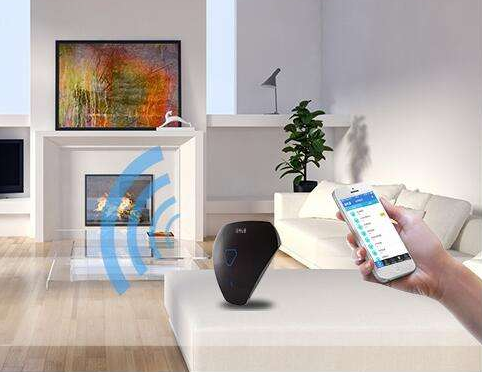In the past year, a large number of smart home products have emerged on the market, such as smart air purifiers, smart cameras, smart sockets, etc. These smart homes have made ordinary consumers feel the convenience and convenience that smart homes can bring. A comfortable, safe, and efficient lifestyle has also made many companies see potential outlets. Many people therefore call 2014 the first year of smart homes. By 2015, the smart home market is bound to be more lively. However, behind the hustle and bustle, is smart home a blue ocean or a momentary gimmick?

Manufacturers and Internet giants have entered the smart home
With the development and application of technologies such as the Internet of Things, cloud computing, and wireless communication, smart homes in the future will place more emphasis on automation, focusing on perception, detection, and feedback capabilities. They can accurately present content based on user information and use simple and convenient interaction methods. , Provide humanized services quickly.
The networked characteristics of smart homes have prompted traditional home furnishing companies to wade into the Internet. On March 20th, Haier launched the world's first Zhilian U+ service model in Beijing. With the support of cloud data, it can realize automatic diagnosis, active service, and self-service of smart home appliances.
From March 11th to 14th, during the China Home Appliance Expo, Midea announced its M-Smart system white paper. According to Mao Hongjian, Dean of Midea Group Smart Home Research Institute, in the future, Midea's M-Smart system will establish an intelligent routing and home control center.
The Internet giants are also constantly entering the war. On December 14, 2014, Xiaomi Technology Co., Ltd. and Midea Group announced the signing of a strategic cooperation agreement. Previously, the release of Xiaomi TV, Xiaomi router, Xiaomi air purifier, etc. had already shown Xiaomi's ambitions in the smart home appliance industry.
As early as 2013, Alibaba had strategically invested 2.822 billion Hong Kong dollars in Haier: Last month, Alibaba made a strategic investment of US$590 million in Meizu. The three companies have formed an alliance based on capital ties and announced that they will jointly create a smart ecosystem and set foot in the field of smart homes.
JD.com, which started as an online shopping platform, once again laid out the field of smart hardware in March, released a new policy for its smart platform JD+, and announced the withdrawal of new smart home kit products, trying to build a complete service circle around smart homes.
During the China Home Appliance Expo, 360 showcased smart products such as smart air conditioners cooperating with Aux, air purifiers cooperating with TCL, and its own smart home solutions, and said that it will invest tens of billions of funds this year to join potential companies Layout the smart home market.
The next blue ocean or hype?
With the continuous advancement of technology, in the eyes of a large number of home appliance manufacturers and Internet companies, smart homes have become a "trillion-level" market. Imagine that all the household items in the home are automated, intelligent, and interconnected. Only a mobile phone or other terminal is needed. You can understand and command the working status of the home appliances anytime and anywhere, saving time and trouble, humane, energy-saving and environmentally friendly. Such a scenario It is bound to usher in a blue ocean in the market for smart homes.
However, some analysts in the industry believe that smart home is still in its infancy, and conditions are not mature in all aspects. At present, major companies have played the "smart" brand, which is more of a hype concept. Whether it is a traditional home appliance company or an Internet company, each is developing its own series of products. Before a unified standard is issued, it is still unclear whether the smart products of each company are compatible with each other.
High prices and poor product experience are also factors criticized by consumers. Many companies have just implemented simple voice control, manual control and other functions, and have begun to hype the concept of "smart home". After using it, many consumers say that the new function is not practical, but the price has risen greatly. In addition, for middle-aged and elderly people, how to use smart home easily and easily is also a problem that manufacturers should consider. According to the joint survey data of Aoweiyun.com and Tencent Home Appliances, users are currently interested in smart homes by 95.2%, but 87.5% of users are dissatisfied with the status quo of smart homes, saying that they are totally inconsistent with expectations or lower than expectations.
A new rule from the Drug Enforcement Administration (DEA) threatens to upend the American hemp industry, and could even result in criminal prosecutions for manufacturers of CBD and delta-8 THC products.
The DEA says the [interim final rule," issued Aug. 20, is simply a matter of adjusting its own regulations to account for changes to the Controlled Substances Act that were mandated by the 2018 Farm Bill (or Agricultural Improvement Act) that legalized hemp and CBD production. The new rule [merely conforms DEA`s regulations to the statutory amendments to the CSA that have already taken effect," says the agency. The new rule doesn`t break any ground, according to the DEA.
But many experts on cannabis and hemp law say the DEA rule creates a potential pathway the law enforcement agency could use to prosecute hemp processors and producers of CBD (cannabidiol) and delta-8 THC (or Δ8THC) products. There are two issues: partially processed CBD, and [synthetically derived" delta-8 THC.
Cbd Pod System Oem,Cbd Vape Pod Oem,Best Cbd Pod System,Cbd Pod System
Shenzhen MASON VAP Technology Co., Ltd. , https://www.cbdvapefactory.com